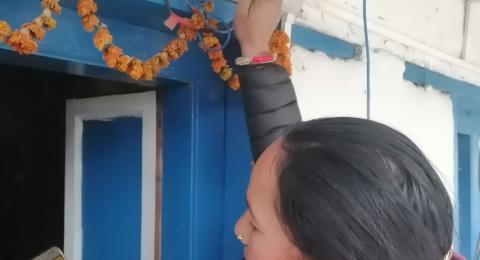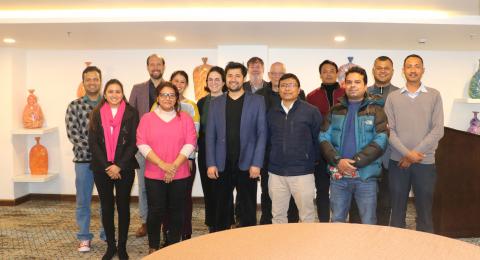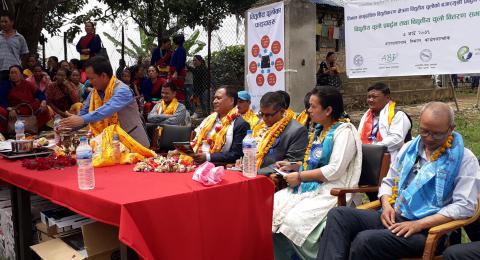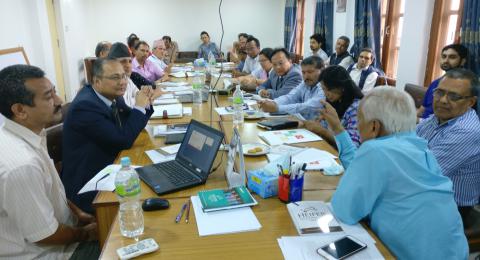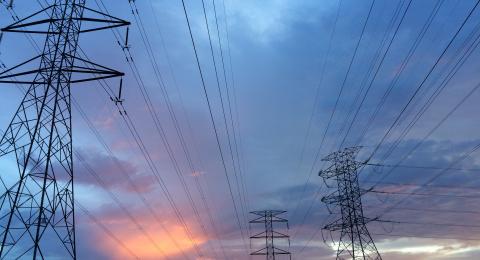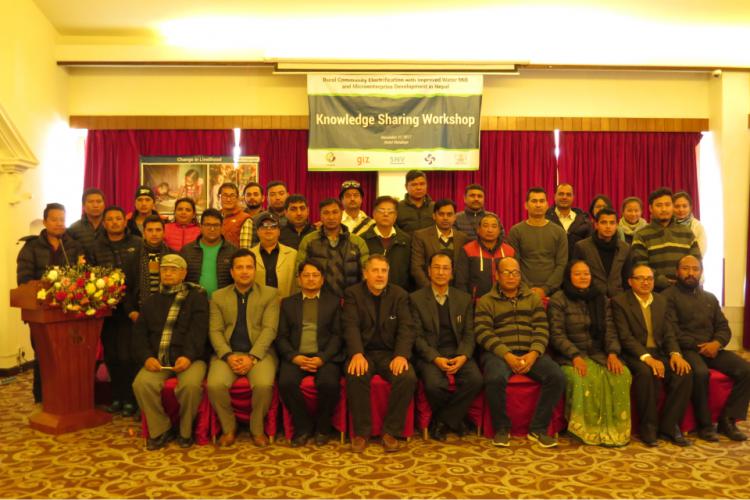
Knowledge Sharing Workshop on Rural Community Electrification with Water Mill and Micro Enterprise Development in Nepal
27 December 2017, Kathmandu
A workshop on “Rural Community Electrification with Water Mill and Micro Enterprise Development in Nepal Project” was conducted at Hotel Himalaya, Kupondole, Lalitpur on 27th December 2017. This project started from 2013 onwards with “proof of concept” being implemented with financial support from Energising Development (EnDev) Nepal and SNV, technical support from Centre for Rural Technology, Nepal (CRT/N) and policy support from Alternative Energy Promotion Centre (AEPC). As upscale of the programme, since May 2016 Gramin Urja Tatha Prabidhi Sewa Kendra Pvt. Ltd. (RETSC) has been implementing as Local Capacity Builder.
With the objective to share the outcome and various learning of the programme with the stakeholders and other partners, the knowledge product developed was presented in the workshop. Here, a business model has been developed that introduces a credit component, a tariff payment system, a plan for mechanical use of power at the water mill site and proper market linkages for micro-enterprises. This self-sustaining revenue model and the commercial process are used to initiate the up-scaling process of IWM electrification through a full-fledged IWM community electrification project in selected districts of Nepal.
In the workshop, IWME programme team gave a brief presentation along with the discussion on the impact of IWME programme in rural communities and received feedbacks/remarks from the representatives from EnDev, SNV, CRT/N, AEPC, RETSC and other partners. The main aim of the project is to provide basic lightning service to the people of remote hill areas with no other means of electricity supply or source. Besides the supply of electricity, the programme also provides development of economic activities through promotion of small scale micro enterprises based on the use of the mechanical and electrical energy supply. The programme has been able to change the livelihood of rural people through basic lighting services and economic and employment generating activities by establishing and operating micro enterprises.


